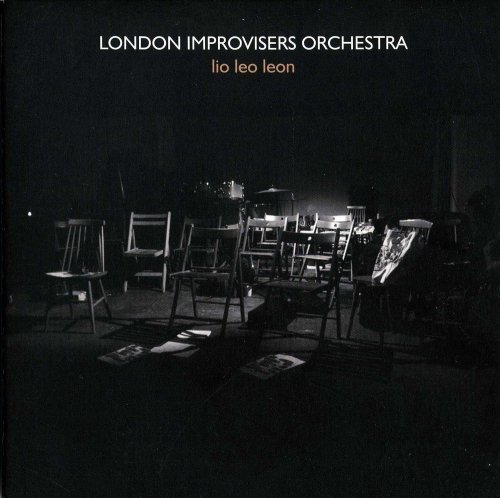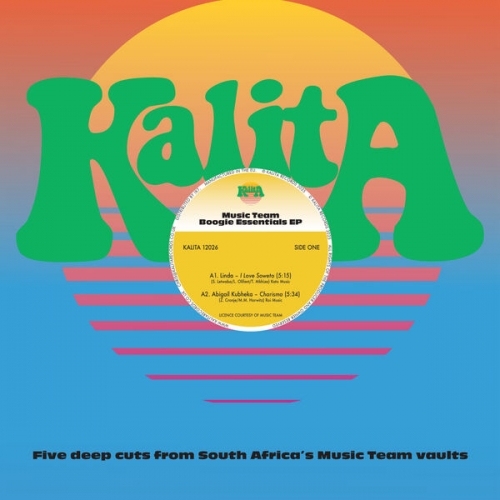London Improvisers Orchestra - Lio Leo Leon (2011)

Artist: London Improvisers Orchestra
Title: Lio Leo Leon
Year Of Release: 2011
Label: Psi
Genre: Avant-Garde Jazz
Quality: FLAC (tracks+.cue, log)
Total Time: 1:12:18
Total Size: 394 MB
WebSite: Album Preview
Tracklist:Title: Lio Leo Leon
Year Of Release: 2011
Label: Psi
Genre: Avant-Garde Jazz
Quality: FLAC (tracks+.cue, log)
Total Time: 1:12:18
Total Size: 394 MB
WebSite: Album Preview
01. Before Tapping (8:16)
02. Wiretapping (12:36)
03. After Tapping (4:22)
04. Concerto For Soft-Loud Key-Box No. 2 (10:10)
05. Inhale Exhale (14:12)
06. Numbers Listening (5:48)
07. After Numbers (4:18)
08. Concerto For Ishmael Wadada Leo Smith & Orchestra (12:36)
Each year at London's Freedom of the City (FOTC) festival of improvised music, one of the most eagerly anticipated highlights is the Sunday evening appearance of the London Improvisers Orchestra (LIO). Although the LIO meets monthly throughout the rest of the year, on the first Sunday in May at FOTC they seem to produce something a bit special, not least because there is always a good turn out of members plus guests. So it proved in 2010, when the 40-strong orchestra included special guests Wadada Leo Smith on trumpet and Leon Michener on piano, hence the clever album title, lio leo leon
The album's eight tracks capture the entire performance of Sunday, May 2, 2010, seamless from start to finish, making it almost impossible to distinguish the five conductions from the three improvisations. One of the more amazing things about the LIO is that, even with the number of musicians in its ranks—here even including three double bassists and three percussionists—it still manages to produce coherent improvisations that do not degenerate into cacophony. Partly this is due to the wealth of experience of its members and their time spent playing together; for instance, comparing this 2010 lineup with that of 2003, which recorded the improvisations on Improvisations for George Riste (Psi, 2008), reveals many of the same names recurring, including such stalwarts as trumpeters Ian Smith and Roland Ramanan, clarinetists John Rangecroft and Harrison Smith, saxophonists Lol Coxhill, Adrian Northover and Caroline Kraabel and flautist Neil Metcalfe.
Right from the start of the opening improvisation, "Before Tapping," the orchestra plays with such restraint and delicacy that it is impossible to hazard a guess at its size; based on the aural evidence, it could easily be taken for a tentet playing arranged music. But as the sound swells, the power and richness of the full orchestra is revealed. The players avoid getting in each others' way or playing across one another, a testament to their well-developed powers of concentrated listening. When one player comes to the fore as a soloist, the others instinctively become sympathetic supporting players.
The transition into Alison Blunt's "Wiretapping" conduction is imperceptible, aided by a characteristically swooping trombone flourish from Alan Tomlinson, one of LIO's trademark sounds, before leading into ensemble brass. Blunt alternates swirling strings with high-tempo, full-on drumming and vocal eccentricities from the orchestra, giving the piece many contrasts and making it a thrilling listening experience. The transition back to improvisation is as smooth as before.
Inevitably, the spotlight must focus on the two concerto conductions created for Michener and Smith: Steve Beresford's "Concerto for Soft-Loud Box No. 2" demonstrates his customary skill as a conductor of LIO, with huge crescendos from the orchestra providing a fitting backdrop to showcase Michener's piano features. The piece again makes good use of vocals and dynamic shifts. After similarly impressive conductions from Philipp Wachsmann and Kraabel, another brief improvisation leads into Dave Tucker's conduction "Concerto for Ishmael Wadada Leo Smith & Orchestra." Fittingly, Smith's trumpet dominates it as he fires off blast after blast of righteous sound in a bravura performance, ably supported by the entire orchestra. It brings the performance to a fitting finale. However, good as it is, LIO is not essentially about showcasing such star performers, far more about the month in, month out quality that comes from its deep-rooted togetherness—of which this album is a prime example.
The album's eight tracks capture the entire performance of Sunday, May 2, 2010, seamless from start to finish, making it almost impossible to distinguish the five conductions from the three improvisations. One of the more amazing things about the LIO is that, even with the number of musicians in its ranks—here even including three double bassists and three percussionists—it still manages to produce coherent improvisations that do not degenerate into cacophony. Partly this is due to the wealth of experience of its members and their time spent playing together; for instance, comparing this 2010 lineup with that of 2003, which recorded the improvisations on Improvisations for George Riste (Psi, 2008), reveals many of the same names recurring, including such stalwarts as trumpeters Ian Smith and Roland Ramanan, clarinetists John Rangecroft and Harrison Smith, saxophonists Lol Coxhill, Adrian Northover and Caroline Kraabel and flautist Neil Metcalfe.
Right from the start of the opening improvisation, "Before Tapping," the orchestra plays with such restraint and delicacy that it is impossible to hazard a guess at its size; based on the aural evidence, it could easily be taken for a tentet playing arranged music. But as the sound swells, the power and richness of the full orchestra is revealed. The players avoid getting in each others' way or playing across one another, a testament to their well-developed powers of concentrated listening. When one player comes to the fore as a soloist, the others instinctively become sympathetic supporting players.
The transition into Alison Blunt's "Wiretapping" conduction is imperceptible, aided by a characteristically swooping trombone flourish from Alan Tomlinson, one of LIO's trademark sounds, before leading into ensemble brass. Blunt alternates swirling strings with high-tempo, full-on drumming and vocal eccentricities from the orchestra, giving the piece many contrasts and making it a thrilling listening experience. The transition back to improvisation is as smooth as before.
Inevitably, the spotlight must focus on the two concerto conductions created for Michener and Smith: Steve Beresford's "Concerto for Soft-Loud Box No. 2" demonstrates his customary skill as a conductor of LIO, with huge crescendos from the orchestra providing a fitting backdrop to showcase Michener's piano features. The piece again makes good use of vocals and dynamic shifts. After similarly impressive conductions from Philipp Wachsmann and Kraabel, another brief improvisation leads into Dave Tucker's conduction "Concerto for Ishmael Wadada Leo Smith & Orchestra." Fittingly, Smith's trumpet dominates it as he fires off blast after blast of righteous sound in a bravura performance, ably supported by the entire orchestra. It brings the performance to a fitting finale. However, good as it is, LIO is not essentially about showcasing such star performers, far more about the month in, month out quality that comes from its deep-rooted togetherness—of which this album is a prime example.


![Wes Montgomery - Full House (Remastered 2026 / Live At Tsubo / 1962) (1962) [Hi-Res] Wes Montgomery - Full House (Remastered 2026 / Live At Tsubo / 1962) (1962) [Hi-Res]](https://www.dibpic.com/uploads/posts/2026-02/1772124946_cover.jpg)
![Mateus Asato - ASATO (2026) [Hi-Res] Mateus Asato - ASATO (2026) [Hi-Res]](https://www.dibpic.com/uploads/posts/2026-02/1772112407_egqdz3e9dom2b_600.jpg)

![Sinedades - De par en par (2026) [Hi-Res] Sinedades - De par en par (2026) [Hi-Res]](https://img.israbox.com/img/2026-02/23/k9xyrl2p7m3kmcwozolhfnu7a.jpg)

![Roberta Flack - Roberta Flack (2026 Remaster) [Hi-Res] Roberta Flack - Roberta Flack (2026 Remaster) [Hi-Res]](https://www.dibpic.com/uploads/posts/2026-02/1772098000_cover.png)
